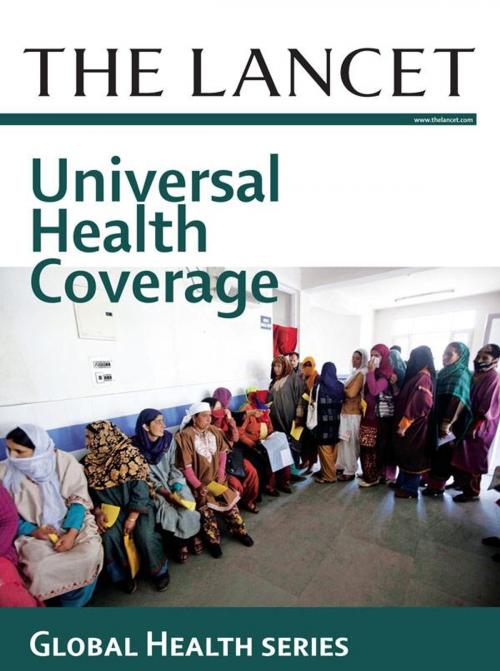The Lancet: Universal Health Coverage
Global Health Series
Nonfiction, Health & Well Being, Medical, Patient Care, Medicaid & Medicare, Reference, Health Policy| Author: | ISBN: | 9780702054846 | |
| Publisher: | Elsevier Health Sciences | Publication: | December 15, 2012 |
| Imprint: | The Lancet | Language: | English |
| Author: | |
| ISBN: | 9780702054846 |
| Publisher: | Elsevier Health Sciences |
| Publication: | December 15, 2012 |
| Imprint: | The Lancet |
| Language: | English |
Margaret Chan, Director General of the World Health Organization, has stated that "Universal Health Coverage is the single most powerful concept that public health has to offer." In this Series from The Lancet, the first of three papers explores the evidence on the links between expansions in coverage and population health outcomes. The second paper looks at the political and economic dimensions of the transition to universal health coverage, and the third examines nine low-income and lower-middle-income countries in Africa and Asia that have implemented national health insurance reforms. Also, a Viewpoint calls for continued progress and argues for a large public sector role in health systems reform. What becomes clear in this issue is that although universal health coverage is not a guarantee for progress, attention should focus now not on whether, but on how to make the most of the transition. In a Comment, Judith Rodin and David de Ferranti conclude: "what will emerge in the decades ahead in each country undertaking reform is not entirely clear, but, as this Series and many country examples suggest, we are getting closer to a time when this [transition toward universal health coverage] will be achieved and families will no longer be at risk of having the cost of sickness ruin their lives." The Lancet Global Health Series are groups of articles on a topic of global health importance. Series papers and Comments, related articles, links to relevant publications, media highlights, and audio interviews are available from http://www.thelancet.com/global-health-series. Research into prevalent conditions and wider health policy issues are reported by a range of experts.
Margaret Chan, Director General of the World Health Organization, has stated that "Universal Health Coverage is the single most powerful concept that public health has to offer." In this Series from The Lancet, the first of three papers explores the evidence on the links between expansions in coverage and population health outcomes. The second paper looks at the political and economic dimensions of the transition to universal health coverage, and the third examines nine low-income and lower-middle-income countries in Africa and Asia that have implemented national health insurance reforms. Also, a Viewpoint calls for continued progress and argues for a large public sector role in health systems reform. What becomes clear in this issue is that although universal health coverage is not a guarantee for progress, attention should focus now not on whether, but on how to make the most of the transition. In a Comment, Judith Rodin and David de Ferranti conclude: "what will emerge in the decades ahead in each country undertaking reform is not entirely clear, but, as this Series and many country examples suggest, we are getting closer to a time when this [transition toward universal health coverage] will be achieved and families will no longer be at risk of having the cost of sickness ruin their lives." The Lancet Global Health Series are groups of articles on a topic of global health importance. Series papers and Comments, related articles, links to relevant publications, media highlights, and audio interviews are available from http://www.thelancet.com/global-health-series. Research into prevalent conditions and wider health policy issues are reported by a range of experts.















